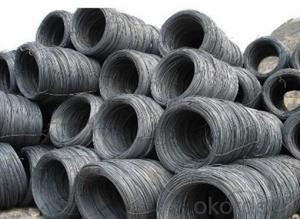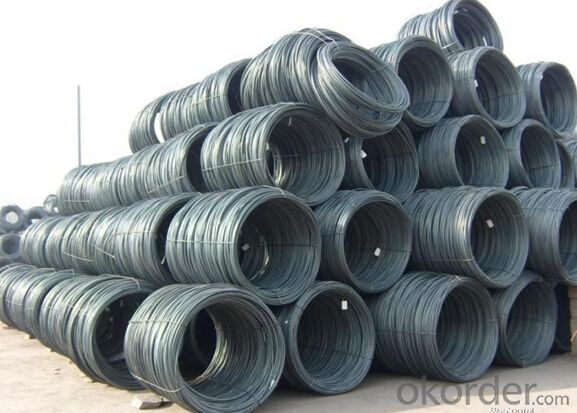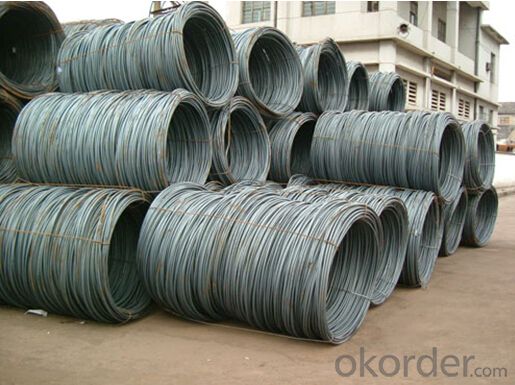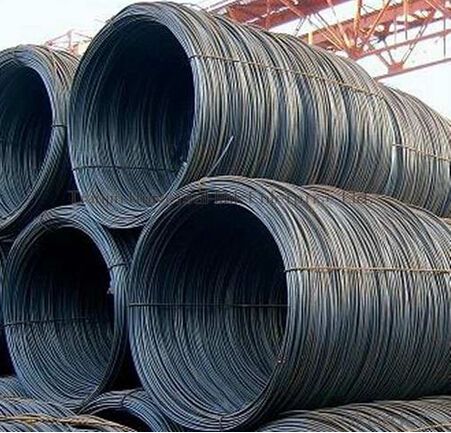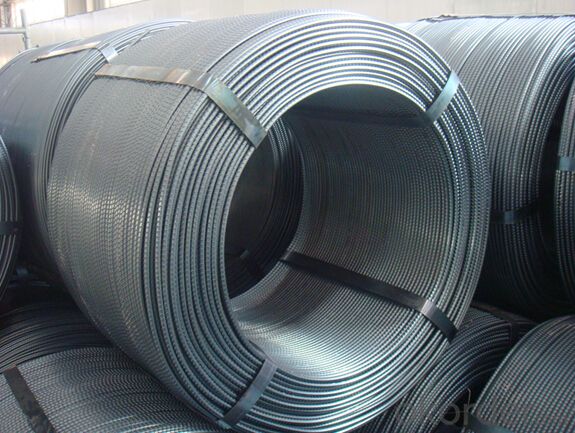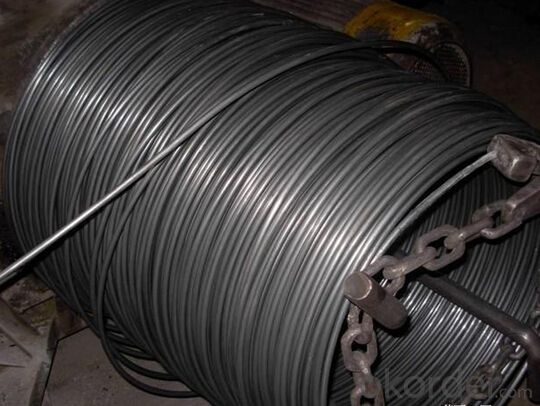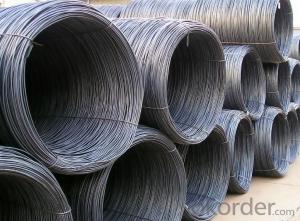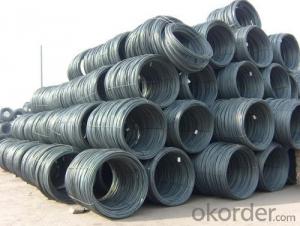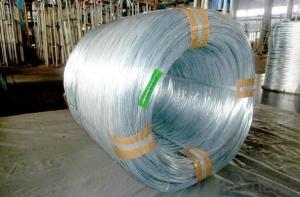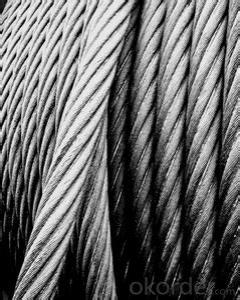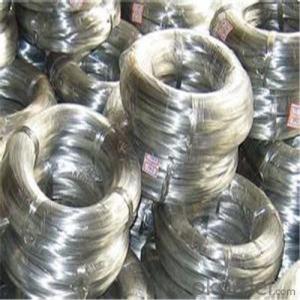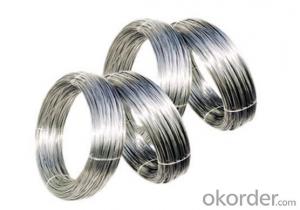High Quality Galvanized 8mm Steel Wire Rod
- Loading Port:
- Tianjin
- Payment Terms:
- TT OR LC
- Min Order Qty:
- 3 m.t.
- Supply Capability:
- 10000 m.t./month
OKorder Service Pledge
Quality Product, Order Online Tracking, Timely Delivery
OKorder Financial Service
Credit Rating, Credit Services, Credit Purchasing
You Might Also Like
Specification
Type:
Carbon Steel,Spring Steel,Bearing Steel,Gear Steel,Deformed Steel,Stainless Steel,Alloy Steel
Shape:
Steel Coil,Steel Sheet,Steel Wire Rod,Steel Flat Bar,Steel Square Bar,Steel Angle,Steel Round Bar,Steel Billets
Technique:
Hot Rolled,Cold Rolled,Cold Drawn,ERW,Forged,Saw,Extruded,EFW,Spring
Surface Treatment:
Galvanized,Coated,Copper Coated,Color Coated,Oiled,Dry,Chromed Passivation,Polished,Bright,Black,PVDF Coated
Certification:
ISO,SGS,BV,IBR,RoHS,CE,API,BSI,UL
Thickness:
5.0-30mm
Width:
5.0-30mm
Length:
In coils
Outer Diameter:
5.0-30mm
Net Weight:
2m.t.
Packaging:
Seaworthy Packaging
High Quality Galvanized 8mm Steel Wire Rod
Detailed Information of the High Quality Galvanized 8mm Steel Wire Rod
| Name | Hot Rolled High Carbon Wire Rod |
| Shape | Round Bar/Square Bar/Flat Bar/Plate/Wire |
| Standard | GB/ASTM/SAE/AISI/DIN/JIS/EN/BS |
| Surface Treatment: | Black/Peeling/Polished/Machined |
| Delivery Condition: | Hot Rolled or Forged/Peeled or Black Surface |
| Test | SGS/UT 100% Elements Testing |
| Certificate: | ISO/Mill Certificate |
| Service: | 24 hours online service / |
| more than 20 years trading and manufacture | |
| Quality Assurance: | the third party inspection, such as SGS, BV, TUV…etc. is acceptable |
| Packaging Details: | Seaworthy Packaging or as per customer's packing instruction |
Chemical Composition of the High Quality Galvanized 8mm Steel Wire Rod
| Grade | Chemical Composition(%) | |||||
| C | Mn | Si | S | P | B | |
| SAE1008 | 0.1max. | 0.3~0.50 | 0.15max | 0.050max | ≤0.040 | >0.0008 |
| Mechanical properties | ||||||
| Yield strength(N/mm2) | Tensile strength(N/mm2) | Elongation(%) | ||||
| 250-280 | 350-380 | ≥32 | ||||
Company Introduction the High Quality Galvanized 8mm Steel Wire Rod
CNBM International Corporation is the most import and export platform of CNBM group(China National Building Material Group Corporation) ,which is a state-owned enterprise, ranked in 270th of Fortune Global 500 in 2015.
With its advantages, CNBM International are mainly concentrate on Cement, Glass, Iron and Steel, Ceramics industries and devotes herself for supplying high quality series of refractories as well as technical consultancies and logistics solution.
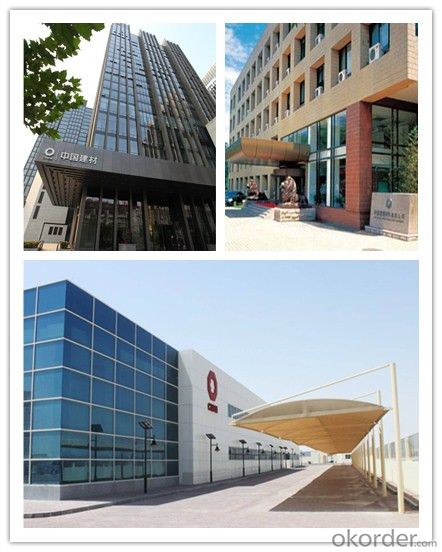
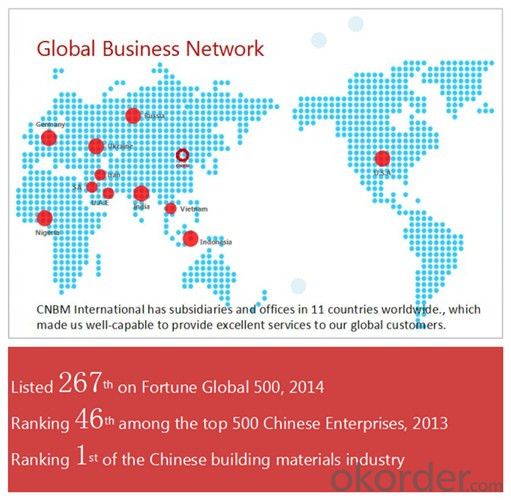
| After-sale service | CNBM provides the services and support you need for every step of our cooperation. We’re the business partners you can trust; you can relax and get on with doing business. |
| For any problem, please kindly contact us at any your convenient time, we’ll reply you in our first priority within 24 hours | |
| Advantages | Industry experience over 20 years. |
| Shipment of goods -More than 70 countries worldwide. | |
| The most convenient transport and prompt delivery. | |
| Competitive price with best service. | |
| High technical production line with top quality products. | |
| High reputation based on best quality products. |
Packaging & Delivery the High Quality Galvanized 8mm Steel Wire Rod
| Packaging Detail | Sea worthy packing /as per customer's packing instruction |
| Delivery Detail | 15 ~ 40 days after receiving the deposit |
Products Show
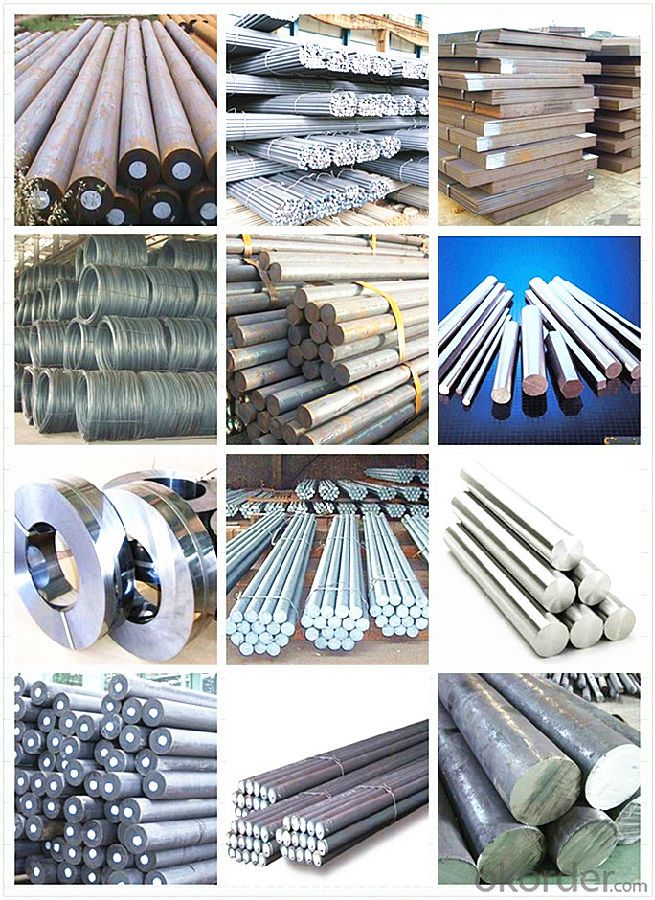
FAQ:
| Are you a trader or manufacturer? | Manufacturer |
| What’s the MOQ? | 3 metric ton |
| What’s your delivery time? | 15-35 days after downpayment received |
| Do you Accept OEM service? | Yes |
| what’s your delivery terms? | FOB/CFR/CIF |
| What's the Payment Terms? | 30% as deposit,70% before shipment by T/T |
| Western Union acceptable for small amount. | |
| L/C acceptable for large amount. | |
| Scrow ,Paybal,Alipay are also ok | |
| Why choose us? | Chose happens because of quality, then price, We can give you both. |
| Additionally, we can also offer professional products inquiry, products knowledge train (for agents), smooth goods delivery, excellent customer solution proposals. | |
| What's your available port of Shipment? | Main Port, China |
| What’s your featured services? | Our service formula: good quality+ good price+ good service=customer's trust |
| Where are your Market? | Covering more than 160 countries in the world |
- Q: How does special steel contribute to the automotive emission reduction?
- Special steel contributes to automotive emission reduction in several ways. Firstly, it is used in the production of lightweight components, such as body panels and chassis parts. By replacing heavier materials with special steel, vehicles become lighter, resulting in improved fuel efficiency and reduced emissions. Additionally, special steel offers superior strength and durability, allowing for the design of more efficient and compact engines. This enables automakers to reduce engine size while maintaining performance, leading to reduced fuel consumption and lower emissions. Furthermore, special steel is used in the manufacturing of exhaust systems, catalytic converters, and other emission control devices. Its high heat resistance and corrosion resistance properties ensure the effective functioning of these components, thereby minimizing harmful pollutants released into the atmosphere. Overall, special steel plays a crucial role in automotive emission reduction by enabling lighter and more efficient vehicles, enhancing engine performance, and ensuring the effectiveness of emission control systems.
- Q: What are the different low-temperature grades of special steel?
- Special steel includes several low-temperature grades designed to withstand extreme cold conditions. Among the commonly used grades are the following: 1. Austenitic Stainless Steel: This grade, such as 304 and 316, is renowned for its excellent corrosion resistance and high strength in low temperatures. It finds frequent use in cryogenic applications like LNG storage tanks and cryogenic piping. 2. Ferritic Stainless Steel: Ferritic stainless steel grades, including 410 and 430, possess good ductility and resistance to stress corrosion cracking, making them suitable for low-temperature applications. They are often utilized in cryogenic environments that require both high strength and resistance to embrittlement. 3. Martensitic Stainless Steel: Martensitic stainless steel, such as 410 and 420, delivers high strength and good toughness even in low temperatures. It is commonly employed in applications demanding exceptional wear resistance and strength, such as valves and turbine blades in cryogenic systems. 4. Duplex Stainless Steel: Duplex stainless steel grades like 2205 and 2507 combine high strength, excellent corrosion resistance, and good toughness in low temperatures. They are extensively employed in offshore and subsea applications where low-temperature performance and resistance to pitting and crevice corrosion are crucial. 5. Nickel-Based Alloys: Nickel-based alloys, such as Inconel and Hastelloy, are renowned for their exceptional corrosion resistance and high strength in both low and high temperatures. They are widely used in cryogenic applications, including liquefied natural gas (LNG) processing plants, as well as the aerospace and chemical processing industries. Each of these low-temperature grades of special steel offers distinct properties and advantages, making them suitable for various applications in extreme cold conditions. The appropriate grade selection depends on factors such as the specific temperature range, required corrosion resistance, strength requirements, and environmental conditions.
- Q: How does special steel perform in terms of corrosion resistance in acidic environments?
- Special steel, such as stainless steel, exhibits excellent corrosion resistance in acidic environments due to its high chromium content. The chromium forms a protective oxide layer on the surface of the steel, preventing the corrosive attack of acids. This makes special steel a reliable choice for applications where exposure to acidic environments is a concern.
- Q: What are the main advantages of using special steel in the aerospace industry?
- The main advantages of using special steel in the aerospace industry are its high strength-to-weight ratio, excellent corrosion resistance, and superior heat resistance. Special steel allows aircraft to be lighter, yet still maintain the necessary structural integrity and safety standards. Its resistance to corrosion ensures the longevity of the aircraft, even in harsh environments. Additionally, special steel's ability to withstand high temperatures makes it suitable for use in jet engines and other crucial components, ensuring optimum performance and safety in aerospace applications.
- Q: How does special steel perform in high-temperature corrosion?
- Special steel has been specifically engineered to excel in environments with high-temperature corrosion. Its exceptional properties grant it exceptional resistance against oxidation and corrosive reactions when subjected to elevated temperatures. The high chromium content found in special steel is a key factor contributing to its performance in high-temperature corrosion. Chromium creates a protective oxide layer, referred to as a passive film, which functions as a barrier against corrosive elements. This passive film remains stable even under high temperatures, successfully preventing oxidation and corrosion. Furthermore, special steel often incorporates additional alloying elements like nickel, molybdenum, and titanium, which further enhance its ability to resist high-temperature corrosion. These elements augment the steel's capacity to withstand aggressive chemical environments typically encountered in industrial processes involving high temperatures and corrosive substances. Moreover, special steel is renowned for its remarkable mechanical properties, which encompass high strength and toughness. These qualities enable the steel to endure the harsh conditions associated with high-temperature corrosion. Even when exposed to extreme temperatures and corrosive chemicals, it can retain its structural integrity and dimensional stability. In conclusion, special steel's exceptional resistance against high-temperature corrosion makes it the ideal choice for various applications in industries such as petrochemical, power generation, and aerospace. Its capacity to maintain performance and durability in challenging environments guarantees the longevity and reliability of equipment and structures, ultimately reducing maintenance and replacement expenses.
- Q: How does special steel contribute to the aerospace fuel efficiency?
- Special steel contributes to aerospace fuel efficiency in several ways. Firstly, special steel alloys are used in the manufacturing of aircraft engines, which are designed to be lightweight and durable. The use of these alloys helps reduce the overall weight of the engine, resulting in less fuel consumption during flight. Additionally, special steel is also used in the construction of various aircraft components, such as wings and landing gear. By utilizing stronger and lighter steel materials, the overall weight of the aircraft is reduced, leading to improved fuel efficiency. Moreover, special steel's high temperature resistance properties enable it to withstand the extreme heat generated by engines, allowing for more efficient combustion and reduced energy loss. Overall, the use of special steel in aerospace applications significantly contributes to fuel efficiency by reducing weight, improving durability, and optimizing engine performance.
- Q: What are the applications of special steel in the electronics industry?
- Special steel is widely used in the electronics industry due to its unique properties and benefits. Some of the applications of special steel in this industry include the manufacturing of electronic components, such as connectors, springs, and contacts, which require high strength and corrosion resistance. Special steel is also used in the production of magnetic cores for transformers and inductors, as it exhibits excellent magnetic properties. Additionally, special steel is utilized in the fabrication of precision tools and equipment used in electronics manufacturing processes, ensuring high precision, durability, and reliability. Overall, the applications of special steel in the electronics industry contribute to enhanced performance, efficiency, and longevity of electronic devices and systems.
- Q: How does quenching and tempering affect the hardness of special steel?
- Special steel can have its hardness and mechanical properties improved through the use of heat treatment processes known as quenching and tempering. During quenching, the steel undergoes rapid cooling from a high temperature to either room temperature or below. This is typically achieved by immersing the steel in a quenching medium like oil or water. The quick cooling results in the formation of a martensitic structure, which is characterized by high hardness and brittleness. Quenching significantly enhances the hardness of the steel. However, the brittleness of the martensitic structure limits its usability in many applications. To address this issue, the steel then undergoes tempering. Tempering entails reheating the quenched steel to a temperature below the lower critical temperature, usually ranging from 200 to 600 degrees Celsius. The steel is held at this temperature for a specific period of time. This process facilitates the transformation of the brittle martensite into a more ductile structure known as tempered martensite. Tempering reduces the hardness of the steel but imparts improved toughness and ductility. The actual hardness achieved after tempering depends on the tempering temperature and time. Higher temperatures and longer times result in a greater reduction in hardness. By carefully adjusting the tempering parameters, a balance between hardness and toughness suitable for the intended application can be achieved. To summarize, quenching and tempering have a significant impact on the hardness of special steel. Quenching increases hardness by creating a martensitic structure, while tempering reduces hardness but enhances toughness and ductility. The specific hardness achieved through these processes can be controlled by adjusting the quenching and tempering parameters to meet the desired mechanical properties for the specific application.
- Q: Can special steel be used in the solar panel manufacturing industry?
- Yes, special steel can be used in the solar panel manufacturing industry. Special steel alloys, such as stainless steel or high-strength low-alloy steel, offer excellent corrosion resistance, durability, and structural support for solar panels. These properties make them suitable for various components like mounting structures, frames, and support brackets in solar panel systems. Additionally, special steel can also enhance the overall efficiency and longevity of solar panels by ensuring their stability and resistance to environmental factors.
- Q: How does special steel perform in terms of wear resistance in abrasive environments?
- Special steel is renowned for its remarkable ability to resist wear in environments with abrasives. The unique combination of elements and the specific heat treatment methods employed during its production result in a greater level of hardness compared to regular steels. This enhanced hardness grants special steel exceptional resistance to wear caused by abrasive particles or surfaces. In environments where friction and contact with hard materials are prevalent, special steel demonstrates outstanding performance. It can endure the erosive effects of abrasive particles, such as sand, rocks, or metal fragments, without experiencing significant wear or damage. This durability positions special steel as the ideal choice for various applications, including mining equipment, cutting tools, industrial machinery, and automotive components. Furthermore, the wear resistance of special steel extends beyond its surface, permeating throughout its structure. Consequently, even if the steel's surface becomes scratched or abraded, the underlying material remains highly resistant to wear. This characteristic ensures that components made from special steel enjoy an extended lifespan, thereby reducing maintenance costs and downtime. Moreover, special steel retains its wear resistance even when subjected to high temperatures. This property proves particularly advantageous in abrasive environments where the heat generated by friction can accelerate wear. The ability of special steel to maintain its hardness and wear resistance at elevated temperatures guarantees its effectiveness in demanding applications such as high-speed machining or hot forging. Overall, special steel surpasses standard steels when it comes to wear resistance in abrasive environments. Its superior hardness, structural integrity, and temperature resistance make it an excellent choice for applications where durability and longevity are crucial.
Send your message to us
High Quality Galvanized 8mm Steel Wire Rod
- Loading Port:
- Tianjin
- Payment Terms:
- TT OR LC
- Min Order Qty:
- 3 m.t.
- Supply Capability:
- 10000 m.t./month
OKorder Service Pledge
Quality Product, Order Online Tracking, Timely Delivery
OKorder Financial Service
Credit Rating, Credit Services, Credit Purchasing
Similar products
Hot products
Hot Searches
Related keywords
